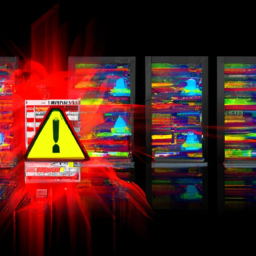New Security Vulnerabilities in Apache SuperSet: A Detailed Analysis
The world of cyber security is always on high alert. Today, we dive into the recent security vulnerabilities found in Apache SuperSet – a powerful, open source data visualization tool. These vulnerabilities, if left unaddressed, could have severe implications for systems running SuperSet. Let’s delve deeper into these vulnerabilities and their potential impact. Cyber Security Professionals need to be aware of these vulnerabilities to effectively ensure the safety of their systems and data.
Understanding the Vulnerabilities
Two new security vulnerabilities in Apache SuperSet have come to the fore. These vulnerabilities, identified as CVE-2023-39265 and CVE-2023-37941, can be exploited by an attacker to gain remote code execution on affected systems. This makes it possible for malicious actors to conduct nefarious actions once they gain control of Superset’s metadata database. The severity of these vulnerabilities cannot be overstated, making it a crucial topic for education in the cyber security sector.
These vulnerabilities have the potential to affect a wide range of systems. This includes large organisations, small-medium organisations, and even public sector entities that use Apache SuperSet.
Here is a brief overview of the vulnerabilities:
| Vulnerability | Potential Impact |
|---|---|
| CVE-2023-39265 | Allows remote code execution on affected systems |
| CVE-2023-37941 | Enables control of Superset’s metadata database |
Addressing the Vulnerabilities
In response to these vulnerabilities, a patch update (version 2.1.1) has been released. This update is designed to address and eliminate these vulnerabilities, thereby enhancing the security of the systems running Apache SuperSet. Running a ISO 27001 Audit is advisable post patch implementation to ensure full security compliance.
It’s always recommended to take a proactive approach when it comes to active cyber defense. This includes staying current with all updates and patches to ensure system vulnerabilities are promptly addressed.
It’s also worth mentioning that, outside these vulnerabilities, Apache SuperSet remains a robust and reliable data visualization tool for many organisations. So, patching these vulnerabilities should not detract from the overall benefits of using this tool, but instead enhance its security.
Importance of Cyber Security
In today’s interconnected world, cyber security awareness is more important than ever. Vulnerabilities like these underline the need for stringent security measures in safeguarding our digital infrastructure. This makes regular ransomware readiness assessments a must for all organisations.
Dealing with vulnerabilities is a reality of the digital world. But with proper planning and a focus on security, potential cyber threats can be effectively mitigated.
This incident is a timely reminder of how important it is to keep systems updated and to stay aware of the latest security vulnerabilities. In doing so, we can better protect our systems from potential threats and ensure they remain secure.
FAQs
| Question | Answer |
|---|---|
| What are the vulnerabilities identified in Apache SuperSet? | CVE-2023-39265 and CVE-2023-37941 are the two vulnerabilities identified in Apache SuperSet. |
| What is the impact of these vulnerabilities? | These vulnerabilities can be exploited by an attacker to gain remote code execution on affected systems and control of Superset’s metadata database. |
| What is the solution to these vulnerabilities? | A patch update (version 2.1.1) has been released to address these vulnerabilities. |
Conclusion
In conclusion, these vulnerabilities in Apache SuperSet highlight the continuous need for vigilance in the digital sphere. By staying abreast of updates and implementing patches in a timely manner, we can ensure the integrity and security of our systems. Remember, the best defense is always a good offense when it comes to cyber security.

Leave a Reply